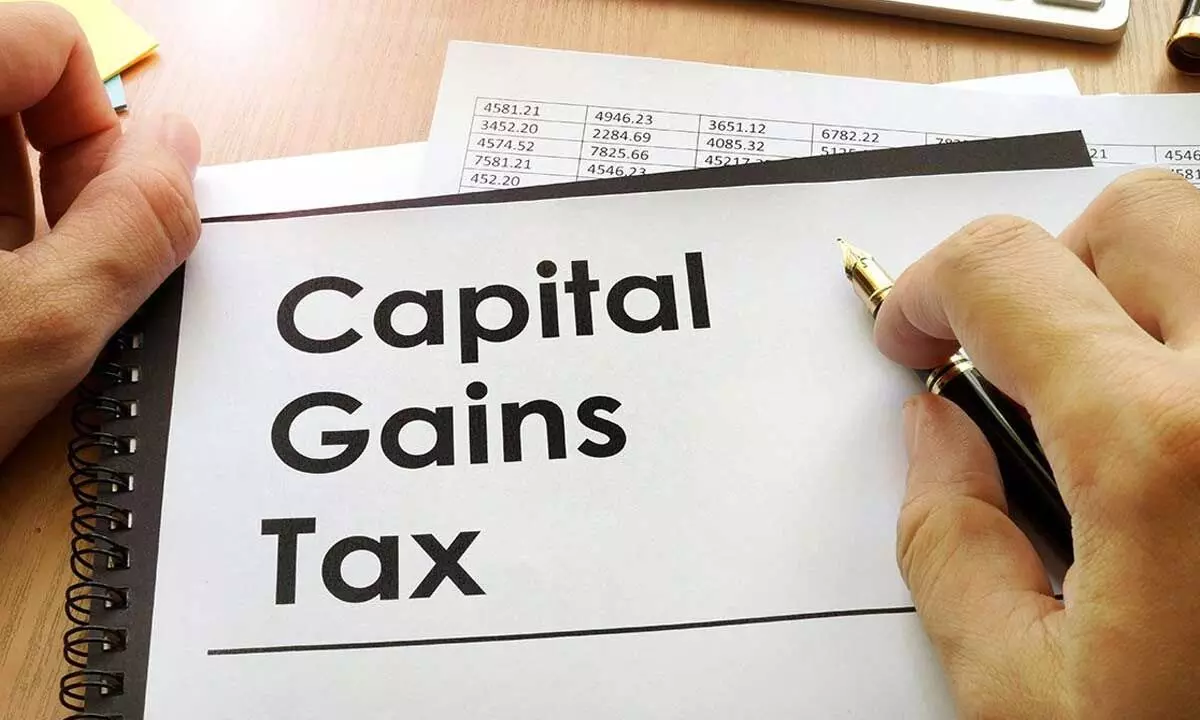No tax if gains from equities less than Rs l lakh in a financial year
Under the prevailing income tax laws, Long Term Capital Gains on Equities is taxed at 10 per cent for gains exceeding Rs 1 lakh
image for illustrative purpose

Our daughter joined in her B Tech first year and stayed in a hostel. She is unable to use G Pay and PhonePe. Are there any alternative apps for minor children?
- Vasantha Pallavi, Nandyal
The minimum age eligibility for most third-party apps is; natural or legal persons above 18 years of age or older who are eligible to contract within the purview of the Indian Contract Act 1872. The person must be 18+ in order to use the third-party UPI apps like G Pay, PhonePe, Amazon Pay etc. Minors below legal age are eligible for the UPI ID.
Some of the best UPI app alternatives for minors give you 'custodial' control, meaning that parents can monitor how the teenagers are handling money and step in if they see them getting into trouble.
Teenagers under 18 can now create their own UPI ID and make money transfers through FamPay. FamPay is India's first UPI, the best-prepaid card and UPI app for teenagers (13-19-year-olds). FamPay helps teens make online and offline payments through the FamCard & UPI ID, exclusively for teenagers. All transactions can be done without a bank account. Teenagers can now make secure payments through it. FamPay, a family-friendly app, ensures its users' highest safety and security. It offers a cashless facility for teenagers with a numberless card, FamCard. FamCard is numberless and keeps your info secure and safe. One can block or pause the FamCard at any time and enable two-factor authentication for all payments. It is available for both iOS and Android devices.
Another best pocket money app for children is Junio. It has users spread across 10 to 16-year-old children. The app was designed for minors that let those below 18 years make online and offline purchases. For using Junio, teenagers and minor children do not need a bank account, and parents can set online expenditure and cash withdrawal limits from the ATM so that kids can only spend the amount loaded on the card. Junio has a maximum monthly limit of Rs 10,000 per month.
National Payments Corporation of India introduced the Unified Payment Interface (UPI) on April 11, 2016. UPI is a payment system that allows people to transfer money between bank accounts or persons like other payment systems RTGS, NEFT or IMPS. Every person must create a Virtual ID in UPI. The UPI virtual ID is nothing but a unique ID which serves as an email id for your account. One can use this Virtual ID to make payments or instant fund transfers to any beneficiaries. The UPI transactions can be made round the clock. National Payments Corporation of India unveiled this interface to simplify payments and facilitate payments through mobile banking. Accessing all UPI-enabled bank accounts through a single application is one of the most significant advantages of the Unified Payment Interface.
I have accumulated ITC shares over the past years and sold all of my 400 shares last month. Do I need to pay income tax on the profit?
- RV Rahul, Etikoppaka
The investments and financial instruments which are held for a period of fewer than 12 months or 1 year are considered short-term stocks in India. If the investments held for more than a year are considered long-term investments. Probably your ITC shares are both long-term and short-term if you have accumulated in the last year. The key lies in these numbers. Well, to put it in a nutshell, there is no income tax (long-term capital gains tax) if your gains are up to Rs one lakh in a financial year. The same applies to gains from equity-oriented mutual funds. If gains are less than or up to Rs. 1 lakh, they are exempted from income tax, and it will not be included in the total income of a taxpayer. You will, however, need to show in Income Tax Returns and pay LTCG tax if your profits or gains from equity shares or equity mutual funds exceed Rs 1 lakh in a financial year. Under the prevailing income tax laws, the Long Term Capital Gains on Equities is taxed at 10 per cent for gains exceeding Rs 1 lakh. The Long Term Capital Gains on equity shares were exempt from taxation until the financial year - 2017-18 and came with effect from the financial year 2018-19. Suggest you take professional help (from a practising chartered accountant) in filing the income tax returns.
However, the surcharge on the long-term capital gains has been capped at 15 per cent.

